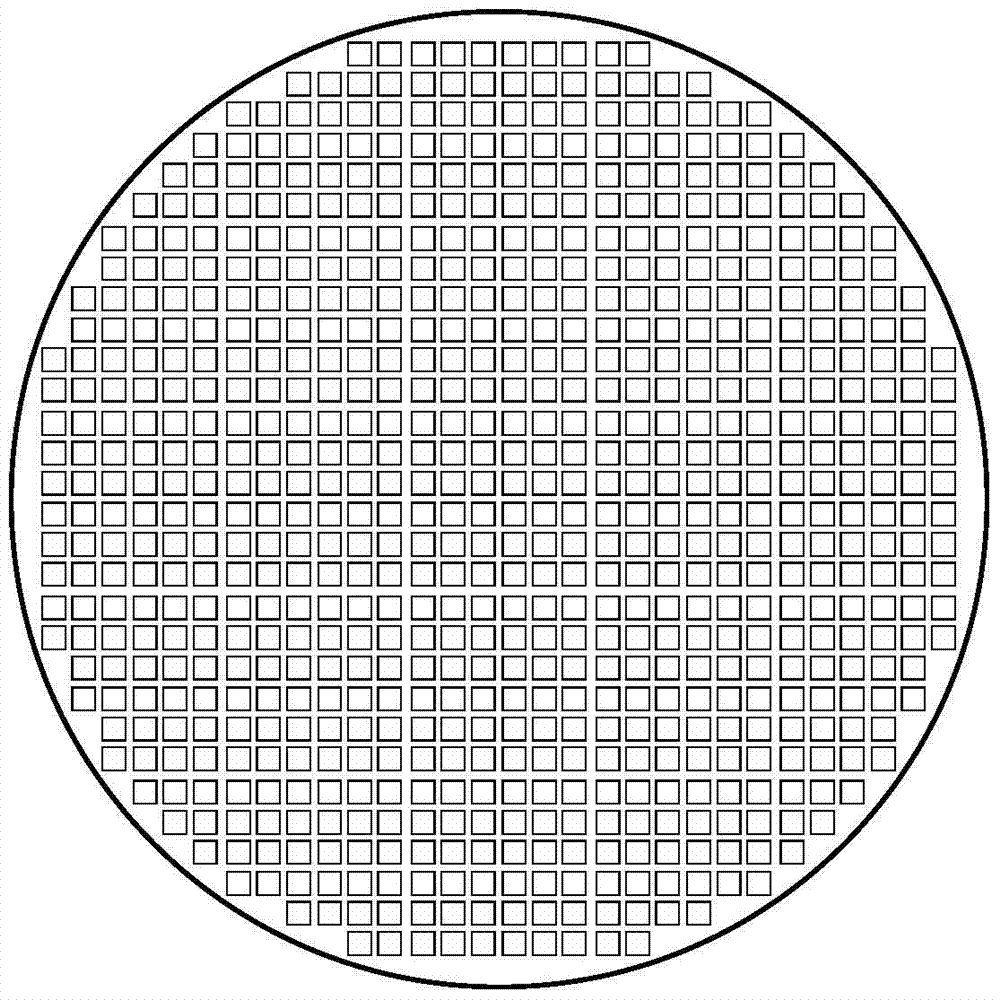Photoresist Wall Forming Method
A molding method and photoresist technology, applied in optics, optomechanical equipment, instruments, etc., can solve the problems of strong water absorption, delamination of photoresist walls, low stiffness of photoresist materials, etc., and achieve high strength and low CTE. , reduce the effect of delamination and detachment
- Summary
- Abstract
- Description
- Claims
- Application Information
AI Technical Summary
Problems solved by technology
Method used
Image
Examples
Embodiment Construction
[0020] The present invention will be further described below in conjunction with drawings and embodiments.
[0021] 1. Use injection molding technology to form a flat plate, such as figure 2 As shown, the front of the flat plate has a first boss 1 and a second boss 2, the first boss 1 is grid-like, and each grid has a second boss 2, and the first boss 1 It is separated from the second boss 2 by a groove, the height of the first boss 1 is greater than that of the second boss 2, and the height difference is greater than 20 microns. The flatness of the surface of the first boss 1 is less than 5 microns. The flat panel can be encapsulated by epoxy resin, polytetrafluoroethylene, phenolic resin, benzoxazine resin, cyanate resin, polyimide, bismaleimide, polyphenylene ether, polyetheretherketone, etc. and its modified materials. Taking glass fiber-reinforced epoxy resin as an example, the maximum temperature it can withstand after curing exceeds 260 degrees Celsius, which exceed...
PUM
| Property | Measurement | Unit |
|---|---|---|
| transmittivity | aaaaa | aaaaa |
Abstract
Description
Claims
Application Information
 Login to View More
Login to View More - R&D
- Intellectual Property
- Life Sciences
- Materials
- Tech Scout
- Unparalleled Data Quality
- Higher Quality Content
- 60% Fewer Hallucinations
Browse by: Latest US Patents, China's latest patents, Technical Efficacy Thesaurus, Application Domain, Technology Topic, Popular Technical Reports.
© 2025 PatSnap. All rights reserved.Legal|Privacy policy|Modern Slavery Act Transparency Statement|Sitemap|About US| Contact US: help@patsnap.com



